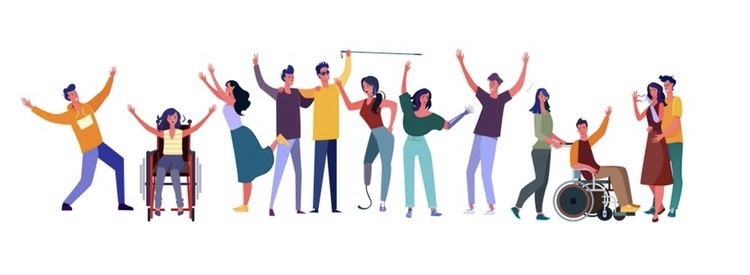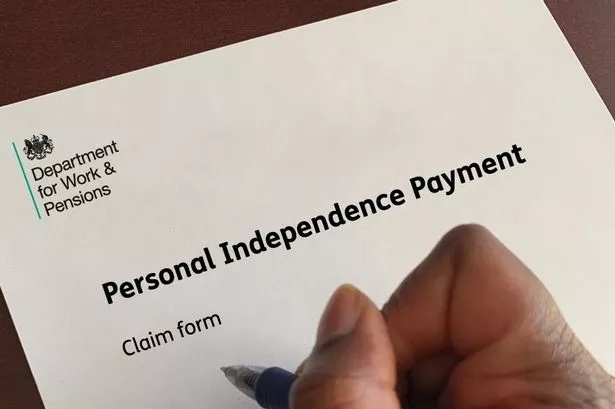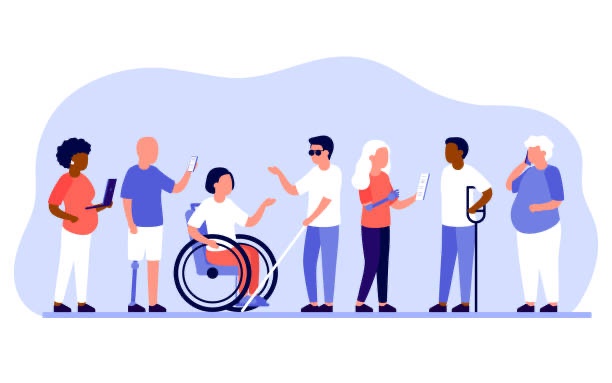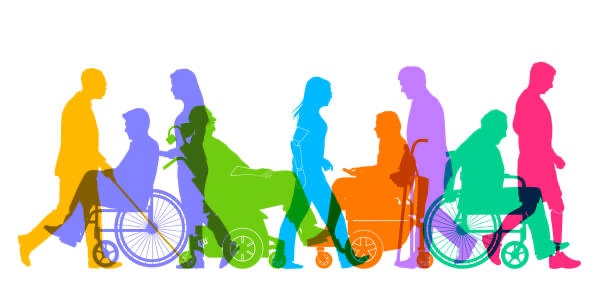Introduction
This blog post is a response to the recent political discussions and speeches by Sunak surrounding the Personal Independence Payment (PIP). Unfortunately, these conversations are not new. Throughout history, disabled individuals have been targeted by governments during times of economic downturn. They have often borne the brunt of austerity measures, facing cuts to vital support services and benefits. This historical pattern of neglect and discrimination is deeply troubling and highlights the urgent need for society to prioritize the well-being and rights of disabled individuals, especially during challenging economic times. I’ll discuss what PIP is; some of the reasons why disabled individuals may be unemployed that have nothing to do with benefits; and then why the independence and freedom of choice PIP can give disabled folks is so important.

What is PIP?
PIP is a benefit provided by the government in England and Wales. Scotland has a different system which to avoid this post getting widely long will not be addressed here. The purpose of PIP is to help individuals with disabilities or long-term health conditions meet the extra costs they face due to their conditions. PIP replaced the Disability Living Allowance (DLA) for people aged 16 to 64 and offers financial support to those who have difficulties with daily living tasks or mobility. PIP is not an unemployment benefit. Many of those who claim it are in fact in work.
To access PIP there is a particularly high burden of proof. The application process for PIP involves a comprehensive assessment that evaluates an individual’s ability to carry out various activities related to daily living and mobility. This assessment takes into account both physical and mental health conditions, ensuring that the level of support provided is tailored to each individual’s needs. Medical evidence will also need to be submitted to support a claim. The burden of proof in PIP cases lies with the claimant to demonstrate the impact of their disability or health condition on their ability to perform these activities. This can often be a challenging and time-consuming process, as individuals are required to provide detailed evidence and documentation to support their claims. So to suggest PIP is ‘easy’ to claim or that ‘anyone can do it’ is simply in accurate. In fact the high burden of proof can create additional stress and anxiety for disabled individuals, who may already be facing significant challenges in their daily lives.
In terms of fraud rates related to PIP, it is important to note that research and statistical evidence consistently show that fraudulent claims are relatively low. The governments own statistics highlight that a mere 0.2% of PIP payments were overpayments due to fraud in FYE 2023. In contrast in the same financial year (FYE 2023) there was a 5.1% (£900m) underpayment of PIP! The vast majority of PIP claimants genuinely require the support provided by this benefit. The government has implemented rigorous measures to detect and prevent any fraudulent activity. These measures include regular assessments and reviews of claimants’ circumstances to ensure ongoing eligibility. While it is crucial to address any fraudulent activity by focusing excessively on fraud rates a harmful narrative that wrongly assumes widespread abuse of the system can be generated. This can contribute to the stigmatisation faced by disabled individuals.

Root causes of disability unemployment.
Despite the fact PIP is not an unemployment benefit it is very often tied to conversations about those who are off work for medical reasons. This can very clearly be seen in the current political conversations about ‘sick note culture’. As such I want to take a brief moment to discuss the lack of acknowledgment of the immense challenges faced by disabled individuals in the workforce. As someone who has experienced these struggles firsthand, I have fought tirelessly year after year to be considered a “productive member of society.” However, I have encountered countless rejections, barriers, and discrimination along the way. It is disheartening to see the hardships faced by disabled individuals go unnoticed and unaddressed. Once again we need to be looking at the root causes for why individuals are not working. If we don’t take any steps to address those it doesn’t matter how many changes to disability benefits are made; disabled people still won’t be able to access the work force.
Building on that conversation about if PIP and unemployment we must turn our attention to the NHS. As the poor state of it is a large contributing factor both to more people qualifying for PIP and/or (as again PIP isn’t an unemployment benefit) being unable to work. The deteriorating state of the National Health Service (NHS) means that more individuals are becoming disabled or unable to work due to delayed or insufficient treatment. And people who are already disabled who may have been able to work can’t due to waits for treatment.
The longer the wait, the more debilitating the health condition can become, which would negatively impact anyone’s sense of well-being. For those in work the long wait lists can impair productivity. Individuals who are waiting for medical treatment or experiencing prolonged ill health may be unable to perform their job duties effectively. This can result in decreased productivity, more sick days being taken, reduced work hours, or even job loss.
All this can lead to substantial societal and economic implications due to more people being out of work due to long wait lists in the NHS. There may be increased pressure on social welfare systems; reduced tax revenue, and putting further strain on public resources.
Addressing the issue of long wait lists is crucial to prevent more people from being out of work. To focus on PIP being ‘overused’ is to focus on a product of the problem not the problem itself. Without improving the NHS people will continue to have worsening health outcomes and as such find it harder and harder to maintain or go into employment.
These struggles with employment are even more problematic because disabled individuals also face additional expenses associated with their disabilities. These costs, such as specialized equipment, transportation, and healthcare, are often overlooked and not adequately addressed. According to disability charity Scope: “On average, disabled households (with at least one disabled adult or child) need an additional £975 a month to have the same standard of living as non-disabled households.” If we choose to ignore these additional financial burdens then society will likely fail to provide the necessary support for disabled individuals to lead fulfilling lives.

Why independence and freedom of choice matter.
Changing the Personal Independence Payment (PIP) from a cash benefit to a voucher system has been one suggestion made in recent political discourse. Many are seeing this as an easy solution however in reality it could be immensely harmful. Particularly because disabled individuals already often experience reductions in their independence and freedom of choice. Implementing a voucher system for PIP could further restrict their ability to make decisions that best meet their individual needs. A voucher system cannot adequately account for the vast and varied individual needs of disabled individuals. Each person’s disability is unique, and their requirements may differ significantly. A one-size-fits-all approach, as implied by a voucher system, fails to consider the diverse range of disabilities and the specific support and assistance each individual may require.
Vouchers could ironically mean that some disabled folks who are currently working will no longer be able to. As they may use their PIP to pay for resources that help them stay in work. For example taking a taxi to and from work to reduce pain and fatigue. Someone may rely takeaways or meal prep service to ensure they are getting the fuel and nutrition needed to go into work. Perhaps someone might get physio massages to enable them to cope with stiffness and pain that can come from long hours sitting down. Electricity and gas bills could be higher as a person may need a warm house, hot water bottles, heat packs, baths etc. to keep them well enough to allow them to keep working. For me baths are hugely important both for pain management but also for relaxing and regulating my mental illness. I could go on for paragraphs about this because it’s impossible to list or even know what adaptations every single disabled person could need. Each individual knows themselves best and should be able to make their own decisions.
That lack of ‘trust’ for disabled people making their own decisions that will come from moving to a voucher system implies a level of infantilization towards disabled individuals. By suggesting that they cannot be trusted to spend their own money wisely, it undermines their autonomy and treats them as incapable of making responsible financial choices. This approach fails to recognize the diverse range of skills, knowledge, and abilities possessed by disabled people, further perpetuating stereotypes and stigmatization. It is crucial to consider these factors when discussing any potential changes to disability benefits to ensure that the support provided is truly inclusive and empowering.

Conclusion
In conclusion, disability benefits, such as PIP, play a critical role in providing financial assistance to individuals with disabilities. These benefits are essential for addressing the extra costs associated with disabilities, supporting independence, and ensuring a fair and equitable society. It is crucial that we recognize and value the rights and well-being of disabled individuals, working towards a society that fosters inclusivity, support, and equal opportunities for all.
